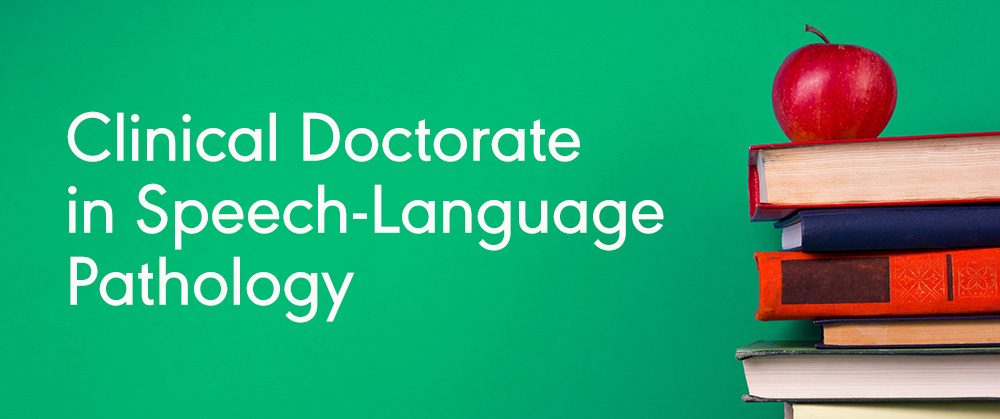The emergence of, and experiences with, entry-level clinical and professional doctoral degrees has resulted in a wide range of sentiments from clinicians and researchers in the fields of rehabilitation sciences, allied health, nursing, and medicine. These sentiments range from strong support to clear rejection and, in part, relate to (a) one’s experience with holders of such degrees or programs that confer them, (b) the wide variation of requirements inherent in these degrees, (c) whether they are entry-level or advanced degrees, and (d) a perceived threat of replacement or devaluing of traditional doctoral degrees such as the PhD and MD. The value of a clinical doctoral degree in speech-language pathology is no exception and has been the focus of debate for several years. At the 2007 Speech-Language Pathology Education Summit, members of the profession affirmed the master’s degree as the requisite entry degree for speech-language pathologists. A clinical doctorate was considered to be a viable option for advanced training and specialization as part of a career ladder trajectory.
Background
At the urging of academic program directors, the ASHA Board of Directors charged the Academic Affairs Board (AAB) to consider the role of a clinical doctoral degree in speech-language pathology and to formulate recommendations to advise the ASHA Board on this matter. The AAB recommended that a standards program for the clinical doctoral degree be considered. Following this recommendation, the Board of Directors established the Ad Hoc Committee on the Feasibility of Standards for the Clinical Doctorate in Speech-Language Pathology to explore options, including guidelines, recognition, and accreditation. After considering the three options, the Ad Hoc Committee recommended, and the Board approved, that guidelines, rather than an accreditation program with standards, be established for an advanced-practice clinical doctorate in speech-language pathology.
The Ad Hoc Committee on Guidelines for the Clinical Doctorate (CGCD) in Speech-Language Pathology was formed in 2014 and charged with developing academic program guidelines, which could include quality indicators, to provide guidance to institutions interested in developing clinical doctoral programs in speech-language pathology. The guidelines also could provide guidance to students considering pursuing the clinical doctoral degree.
Work of the CGCD Ad Hoc Committee
The goal of this article is to summarize the committee’s processes and to address the common concerns associated with the advanced-practice clinical doctorate in speech-language pathology.
The work of the CGCD commenced in June 2014 and followed the commonly accepted best practices for the development of guidelines (e.g., literature review, development of domains and related knowledge and skills, identification of quality program characteristics, and select and widespread peer review). The committee adhered to the following four principles throughout the course of its work:
- The Guidelines provide guidance to academic programs and students.
- ASHA is not considering changing the entry-level degree for speech-language pathologists from a master’s to a clinical/professional doctorate.
- The clinical/professional doctorate is distinct from a research doctorate and is not intended to replace or substitute for the PhD.
- The degree represents one path to acquiring advanced clinical expertise and preparing for leadership roles or specialization.
The CGCD document includes guidelines for six components that should be addressed by all doctoral programs in speech-language pathology: (1) Administrative Structure and Governance, (2) Academic and Clinical Faculty, (3) Students, (4) Assessment, (5) Program Resources, and (6) Curriculum. The Guidelines place emphasis on the clinical aspect of the degree, differentiating it from a professional or research degree; students eligible for admission into a clinical doctoral program would be expected to be ready for advanced clinical education and already hold or qualify for the ASHA CCCs. Additionally, it is recommended that institutions offering the degree have existing CAA-accredited speech-language pathology programs or administer a PhD program that educates speech-language pathologists, such as interdisciplinary rehabilitation science programs. The Guidelines also recognize that degree programs
may deliver the curriculum via multiple modalities to reflect the individual program mission and goals, faculty expertise, and areas of clinical specialization.
The final document includes curriculum guidelines organized into 10 domains, each with a series of knowledge and skills that exemplifies educational outcomes specific to the particular domain. The domains are divided into two tiers. Tier I includes four domains. The knowledge and skills in Tier I are essential components of any quality program, and all are included in the curriculum. Tier II includes six domains, which also are included in the curriculum. The specific knowledge and skills within each Tier II domain may be tailored to meet the strengths of individual programs and needs of the students, as reflected in Figure 1.

Peer Review and Approval Processes
The guidelines document went through a process of select and widespread peer review. The committee’s work concluded in June 2015 with a final report provided to and approved by the ASHA Board of Directors. We are pleased that, as a profession, speech-language pathology has recognized and attempted to meet the needs of clinicians who wish to further their education in the area of advanced clinical training. Approval of the Guidelines for the Clinical Doctorate in Speech-Language Pathology by the ASHA Board shows organizational support for grassroots advocacy, response to a call for change, and continued understanding of how the field of speech-language pathology can advance through a coordinated planning process, initiation of substantive discussion, and consideration of a planning mechanism such as these Guidelines.
Closing Remarks
As we move forward, dissemination of the Guidelines will play a crucial role in providing clarity regarding the doctorate in speech-language pathology. Please look to the ASHA website, The ASHA Leader, and upcoming issues of the Access Academics & Research online newsletter for further information. Any questions about the Guidelines should be directed to AcademicAffairs@asha.org. The CGCD also will provide an informational and question-and-answer session on Thursday, November 12, 4:30 p.m.–5:30 p.m. at the ASHA Convention—Session Number: 1139, Title: Guideline Development for the Clinical Doctorate in Speech-Language Pathology. We hope to see you there.
Resources
Guidelines for the Clinical Doctorate in Speech-Language Pathology [PDF]










